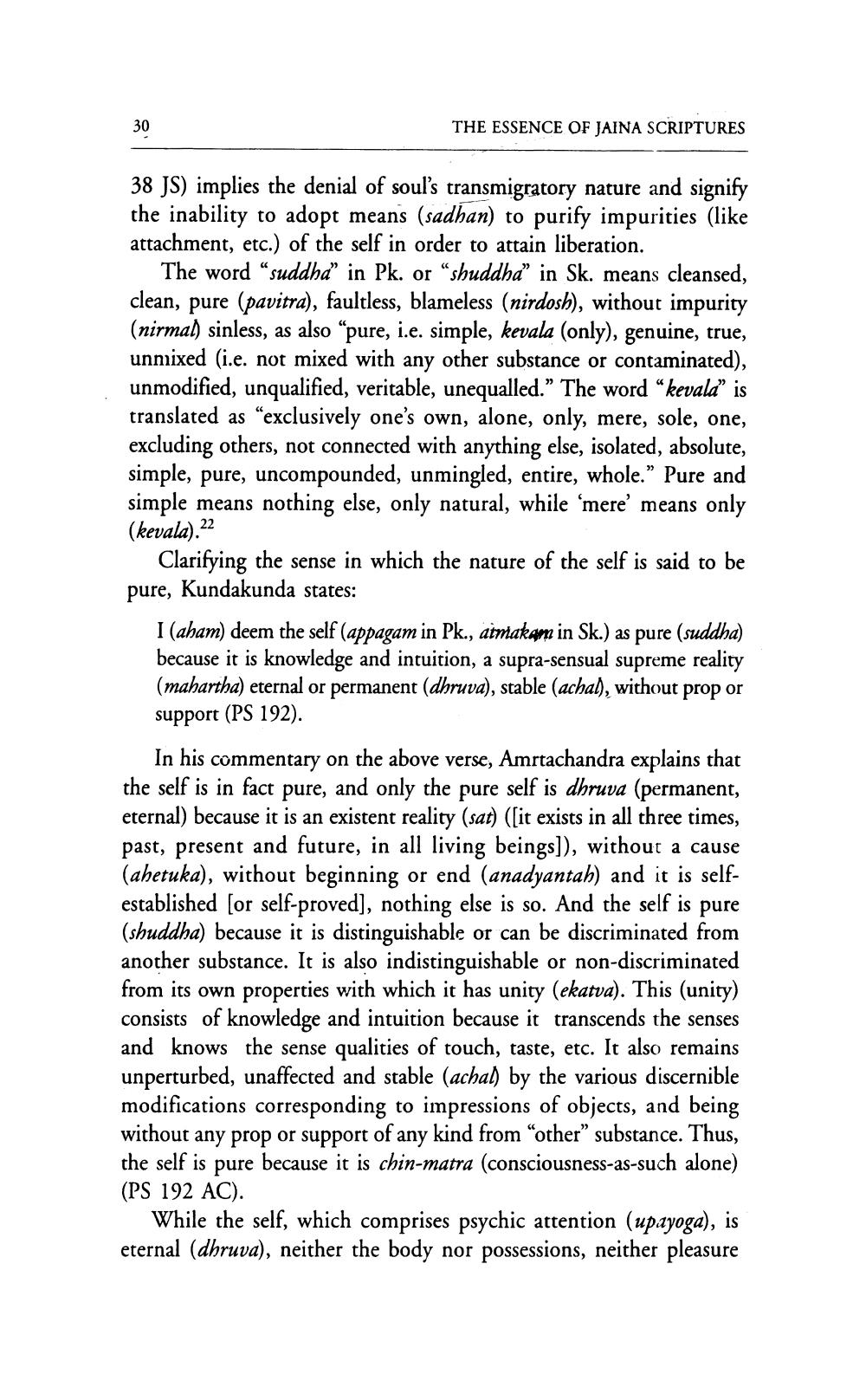________________
THE ESSENCE OF JAINA SCRIPTURES
38 JS) implies the denial of souls transmigratory nature and signify the inability to adopt means (sadhan) to purify impurities (like attachment, etc.) of the self in order to attain liberation.
The word “suddha” in Pk. or "shuddha" in Sk. means cleansed, clean, pure (pavitra), faultless, blameless (nirdosh), without impurity (nirmal) sinless, as also “pure, i.e. simple, kevala (only), genuine, true, unmixed (i.e. not mixed with any other substance or contaminated), unmodified, unqualified, veritable, unequalled.” The word “kevald” is translated as “exclusively one's own, alone, only, mere, sole, one, excluding others, not connected with anything else, isolated, absolute, simple, pure, uncompounded, unmingled, entire, whole." Pure and simple means nothing else, only natural, while 'mere' means only (kevala).22
Clarifying the sense in which the nature of the self is said to be pure, Kundakunda states:
I (aham) deem the self (appagam in Pk., atmakam in Sk.) as pure (suddha) because it is knowledge and intuition, a supra-sensual supreme reality (mahartha) eternal or permanent (dhruva), stable (achal), without prop or support (PS 192).
In his commentary on the above verse, Amrtachandra explains that the self is in fact pure, and only the pure self is dhruva (permanent, eternal) because it is an existent reality (sat) ([it exists in all three times, past, present and future, in all living beings]), without a cause (ahetuka), without beginning or end (anadyantah) and it is selfestablished (or self-proved], nothing else is so. And the self is pure (shuddha) because it is distinguishable or can be discriminated from another substance. It is also indistinguishable or non-discriminated from its own properties with which it has unity (ekatva). This (unity) consists of knowledge and intuition because it transcends the senses and knows the sense qualities of touch, taste, etc. It also remains unperturbed, unaffected and stable (achal) by the various discernible modifications corresponding to impressions of objects, and being without any prop or support of any kind from other” substance. Thus, the self is pure because it is chin-matra (consciousness-as-such alone) (PS 192 AC).
While the self, which comprises psychic attention (upayoga), is eternal (dhruva), neither the body nor possessions, neither pleasure




